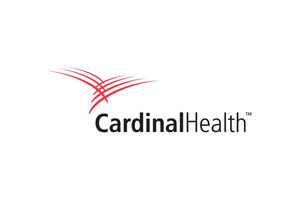DUBLIN, Ohio, Oct. 6, 2021 /PRNewswire/ -- While demand for rheumatology care continues to grow, rheumatologists are feeling pressured by reimbursement changes, administrative duties and workforce shortages. These findings were released today in the latest edition of Rheumatology Insights, a research-based report published by Cardinal Health Specialty Solutions. Based on surveys with more than 85 U.S. rheumatologists, Rheumatology Insights focuses on key trends impacting one of the fastest-growing areas of specialty medicine.
Value-based care and the changing reimbursement landscape were cited as the top challenges facing rheumatologists by 28% of those surveyed, followed closely by increasing administrative duties (24%) and the lack of providers to support patient needs (18%). In addition, 61% said reimbursement has declined over the past year – though a small portion of respondents have counterbalanced the decrease with new sources of revenue. Looking forward, 59% said recent changes in reimbursement on self-administered products would have a "significant negative" or "somewhat negative" impact on their practices, but 38% do not have a plan to address the shortfall.
The survey also explored rheumatologists' perspectives on the effect of COVID-19 on patient care, and their views on the potential impact of artificial intelligence on the future of rheumatology care:
- While only 20% of rheumatologists were using telemedicine prior to the pandemic, 93% say they expect to continue using it after the end of the pandemic, primarily for patients who lack transportation or are immunocompromised.
- 90% of surveyed rheumatologists agreed that social and economic challenges created by the COVID-19 pandemic (including higher unemployment and social isolation) have had a negative impact on the health of their patients, and 83% said mental health support for patients is a key unmet need that was revealed by the pandemic.
- Despite a growing body of research on the use of artificial intelligence (AI) in rheumatology, more than half of survey respondents (56%) said they are not very familiar with the use of AI and machine learning in healthcare, and less than a quarter of respondents believe AI will have a significant impact on rheumatology care over the next three years.
"The demand for rheumatology care is growing steeply as the population ages, while at the same time, the pressures facing rheumatology practices have increased, particularly over the past year due to the COVID-19 pandemic," said Heidi Hunter, President of Cardinal Health Specialty Solutions. "Understanding how rheumatologists are managing these changing dynamics will lead to better insights on how to support the needs of rheumatology patients."
About the Survey
The findings in Rheumatology Insights are based on web-based surveys conducted in July, August and September 2021. More than 85 rheumatologists from a mix of community- and hospital-based practices participated in the research. The report also includes viewpoints from Gordon Lam, MD, FACR, Medical Director of Clinical Research at Arthritis and Osteoporosis Consultants of the Carolinas, and Amy Valley, PharmD, Vice President, Clinical Strategy and Technology Solutions, Cardinal Health Specialty Solutions.
About Cardinal Health
Cardinal Health (NYSE: CAH) is a distributor of pharmaceuticals, a global manufacturer and distributor of medical and laboratory products, and a provider of performance and data solutions for health care facilities. With 50 years in business, operations in more than 35 countries and approximately 44,000 employees globally, Cardinal Health is essential to care. Information about Cardinal Health is available at cardinalhealth.com.
Contacts
Media: to request a copy of the report, please contact Marcia Frederick, [email protected] and (614) 757-9968; Investors: Kevin Moran, [email protected] and (614) 757-7942.
SOURCE Cardinal Health

WANT YOUR COMPANY'S NEWS FEATURED ON PRNEWSWIRE.COM?
Newsrooms &
Influencers
Digital Media
Outlets
Journalists
Opted In





Share this article